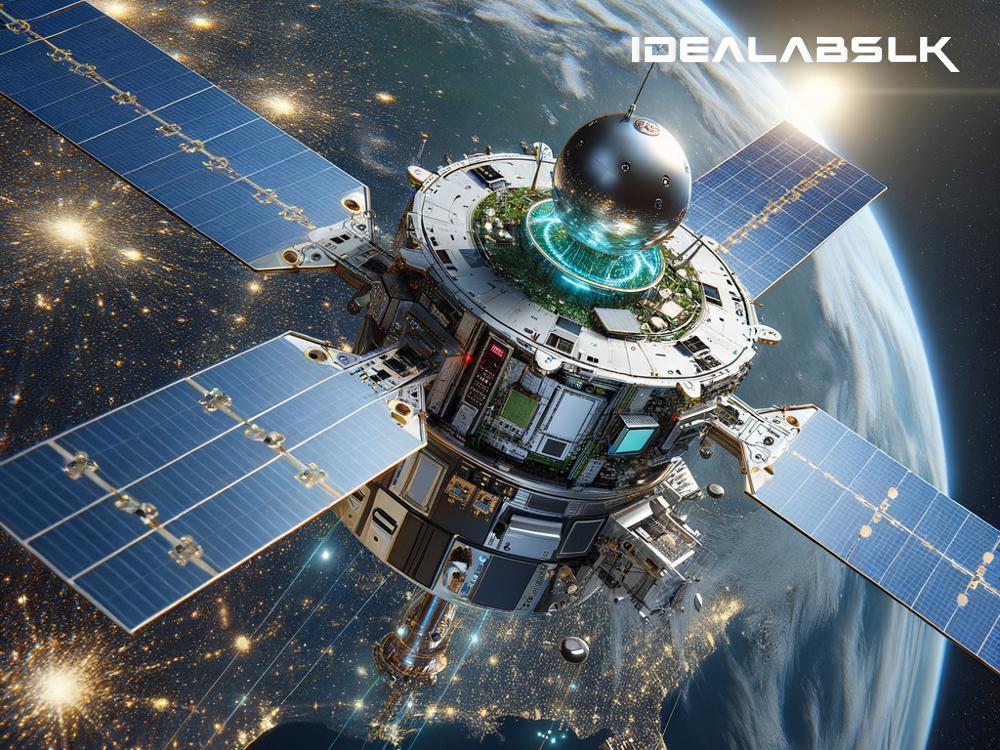How Space-Based AI is Revolutionizing Autonomous Space Missions in 2025
The year is 2025, and the landscape of space exploration has been irrevocably transformed by two powerful forces: artificial intelligence (AI) and autonomy. Gone are the days when space missions depended solely on meticulous planning from Earth, with astronauts painstakingly controlling every maneuver from millions of miles away. Today, we stand at the dawn of a new era where space-based AI is the driving force behind autonomous space missions, propelling us further into the cosmos than ever before. Let’s break down this revolution in simple terms.
The Core of Space-Based AI
Imagine having a super-smart robot buddy in space that can think, make decisions, and solve problems all by itself. That's essentially what space-based AI is all about. It's like having the brain of Albert Einstein combined with the problem-solving prowess of Sherlock Holmes, but in a form that can live and work in outer space. This AI isn't just smart; it's specifically designed to handle the unique challenges of space exploration.
Smart Navigation
One of the first revolutionary changes is in how spacecraft navigate. Traditionally, plotting a course through space required a team of scientists on Earth, crunching numbers and sending instructions across the void. But with AI, spacecraft can now analyze their surroundings, make split-second decisions, and navigate through space with the finesse of a seasoned explorer. This means they can dodge space debris, adjust their course to conserve fuel, or chase down comets and asteroids without waiting for instructions from home base.
Autonomous Problem-Solving
Space is full of surprises, not all of them pleasant. Before space-based AI, an unexpected problem could jeopardize a mission, requiring immediate and often complex decisions to be made from Earth. Now, AI enables spacecraft to identify problems, be it a malfunctioning part or an unexpected environmental hazard, assess the situation, and either fix the issue or find a workaround, all on their own. This autonomy minimizes the risk of mission failure and ensures that even in the most challenging conditions, the mission can proceed.
Continuous Science
One of the most exciting advancements is how space-based AI maximizes scientific research. In the past, the data collected on missions would have to be sent back to Earth for analysis, a process that could take weeks, months, or even years. But now, thanks to AI, spacecraft can analyze data on the spot. This means they can make discoveries in real-time, adapting their missions to follow up on intriguing findings immediately. It's like having a scientist in space, conducting experiments, and sharing breakthroughs without delay.
Living Off the Land
The concept of "living off the land" isn't just for survivalists on Earth anymore. AI is pioneering this practice in space too. Missions to the Moon or Mars now use AI to identify and utilize local resources. Need water? AI can help find ice deposits. Building materials? AI can help process lunar soil into sturdy bricks. This ability drastically reduces the need to ferry supplies from Earth, making long-duration missions more feasible and paving the way for sustainable human outposts on other worlds.
The Future is Now
While all of this might sound like the plot of a sci-fi novel, it's the reality of space exploration in 2025. And the implications are profound. Space-based AI doesn't just make missions safer and more efficient; it fundamentally changes what's possible. Missions that would have been deemed too risky or impossible just a decade ago are now within our grasp.
We're embarking on ambitious voyages to explore the outer planets, setting sights on distant moons thought to harbor oceans beneath their icy crusts, and planning manned missions to Mars that will rely on AI for survival and success. The possibilities are as limitless as space itself.
Embracing the AI Revolution
As we look to the stars, embracing the revolution brought about by space-based AI, one thing becomes clear: the future of space exploration is not just about where we go but how we get there. With AI as the navigator, mechanic, scientist, and pioneer, we’re equipped like never before to unlock the mysteries of the cosmos.
In this new era of autonomy, humans and AI work hand in hand, pushing the boundaries of what’s possible. The final frontier just got a little closer, thanks to the incredible advancements in space-based AI. The year 2025 will be remembered as the moment when space missions truly became autonomous, charting a course for a future where the possibilities are as boundless as space itself.

